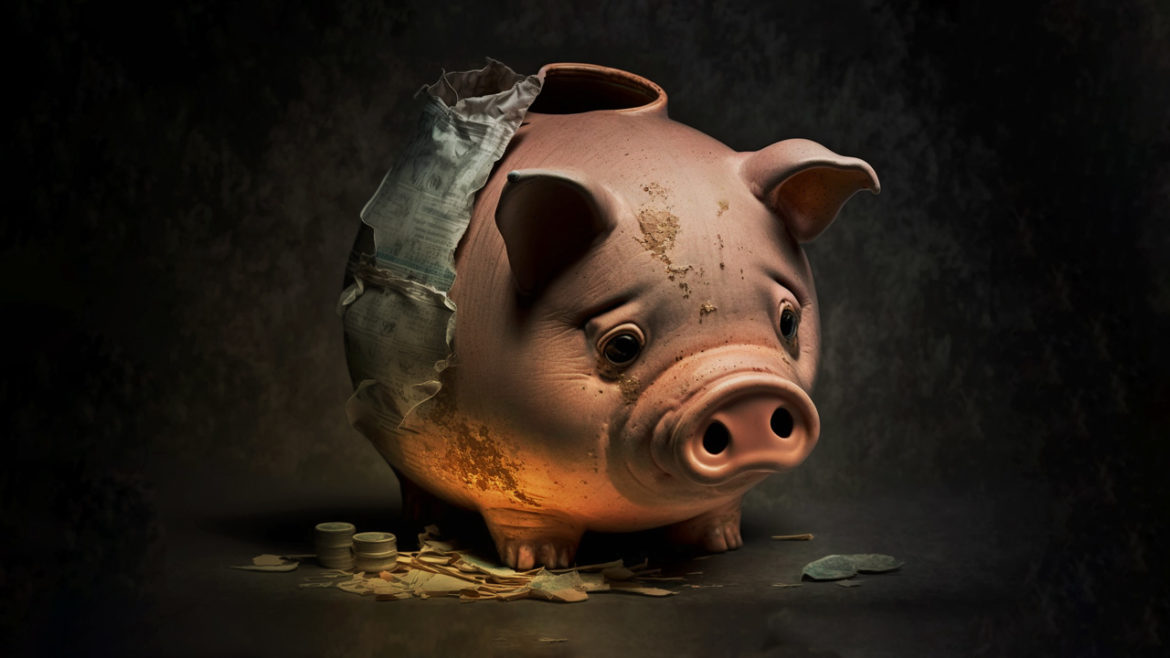Gold has all the potential to go unprecedentedly high. But silver will be gold on
Site:
Precious metals news
U.S. Federal Reserve Chair Jerome Powell will testify before Congress as a week packed with economic data releases lies ahead.
Looking at last month's US Treasury activity, it's clear that interest expenses are exploding upwards at an unsustainable pace. Annualized interest on the debt increased by $25 billion in a single month.
Silver demand was at record levels in 2022 and there is reason to believe it will continue to run hot over the next several decades. One reason is the rapidly increasing demand for silver in the green energy sector. In fact, an Australian study projects solar cells may use most of the world's silver reserves by 2050.
Violent protests in Nigeria reveal that getting average people to embrace central bank digital currencies (CBDCs) might be more difficult than government officials would like.Nigerians recently took to the streets to protest a cash shortage caused by government policies adopted in order to push the country into the adoption of its central bank digital currency (CBDC).Protesters attacked bank ATMs and blocked streets, and demonstrations turned violent in some cities.
 HIGHEST GOLD COST EVER IN 2022: Top Gold Miners Cost Of Production Q4 2022 & Interesting Fundamentals
HIGHEST GOLD COST EVER IN 2022: Top Gold Miners Cost Of Production Q4 2022 & Interesting FundamentalsMarch 7, 2023
While the gold price averaged $1,800 in 2022, the top gold miners experienced the highest costs ever, which negatively impacted profits across the board. Nothing has changed in the past 50 years, as the gold market price is based on the gold mining industry's cost of production...
Most companies under coverage are assuming inflationary pressures seen in 2022 will persist into 2023, but slowly taper off thereafter. Newmont's five-year outlook...
Here is a European central banker noting that gold steadily has outperformed the currency for which he shares responsibility, and suggesting that it is prudent to hold gold..
 Perth Mint Sold Diluted Gold to China, Got Caught, and Tried to Cover It Up
Perth Mint Sold Diluted Gold to China, Got Caught, and Tried to Cover It UpMar 6, 2023 - 12:49:46 PST
In a bid to save money, the world's largest processor of newly mined gold started "doping" its bullion. Then its customers started asking questions.
“The thing I worry the most about is Ukraine,” the JPMorgan Chase & Co. chief executive officer said Monday on Bloomberg Television. “It’s oil, gas, the leadership of the world, and our relationship with China — that is much more serious than the economic vibrations that we all have to deal with on a day-to-day basis.”
A Baltic monitoring media outlet has published footage of an enormous amount of American military equipment being prepared to move from the Port of Gdynia in Poland.
Mar 6, 2023 - 12:44:22 PST
Inflation in goods normalized, but has exploded in services where there are no supply chain issues.
This is true, but the WEF model also represents the governmentalization of private industry. Under Schwab’s stakeholder capitalism and the multistakeholder governance model, governance is not only increasingly privatized, but also and more importantly, corporations are deputized as major additions to governments and intergovernmental bodies.
On February 16, 2023, President Joe Biden issued his second executive order to strengthen equity within federal agencies. Among other things, it ordered them to install equity officers and implement action plans with the superficial aim of making it easier for “underserved communities” to access federal resources.
If you like social media memes, you’ve likely seen examples of “How It Started/How It’s Going.” Basically, this is where you show two pictures of the same person, first very sure of themselves, and then amid embarrassment or disaster.
This is how US Treasury debt is paid. New Treasury securities are issued to pay off those that have matured. The total debt continues to grow because it is never paid off..
Global supply chains have returned to normal, the Federal Reserve Bank of New York said, almost three years after Covid-19 was declared a pandemic.
]The Swiss National Bank reported on Monday an annual loss of 132.5 billion Swiss francs ($141.54 billion), in line with the provisional calculations it announced in January. The loss, the biggest in the central bank's 115-year history, was caused by a plunge in the value of the SNB's investments caused by bond and stock market declines last year.
As Congress prepares for another debt-limit standoff, a look into the past — at the 10 such deadlines lawmakers have confronted over the last 13 years — offers three shared truths.
M2 money supply is currently experiencing its fastest contraction since at least 1981, according to data released yesterday by the Fed.
Things are rough in the US economy, and the FDIC seems to be making plans to handle further collapse. How? By helping themselves to YOUR money that you have on deposit, safely (you thought) tucked away in your bank account.








